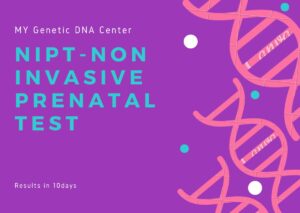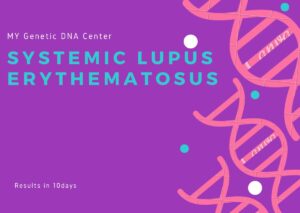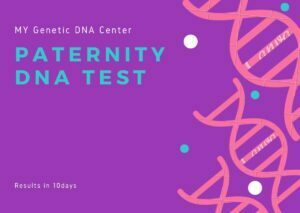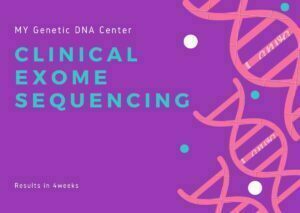BRCA 1&2 GENETIC TESTING:
BRCA 1&2 Genetic Testing analyzes specific inherited mutations in the BRCA1 and BRCA2 genes, which play a critical role in maintaining DNA stability and repairing damage. When these genes carry harmful mutations, they lose the ability to repair DNA effectively, leading to increased cancer risk, especially breast, ovarian, prostate, and pancreatic cancers. Doctors use this test by collecting blood or saliva samples from patients with a family history of BRCA-related cancers, early-onset cancer, or other risk factors. Advanced next-generation sequencing (NGS) and techniques like MLPA allow labs to identify a wide range of mutations, from single nucleotide changes to large gene rearrangements.
Clinicians use the test results to assess hereditary cancer risk, personalize surveillance strategies, guide preventive measures such as prophylactic surgeries, and tailor treatment options using targeted therapies like PARP inhibitors. In addition, the test provides important information for family members, enabling them to understand inherited risks and take preventive action. Overall, BRCA 1 & 2 testing empowers patients and doctors with actionable genetic insights, improving early detection, prevention, and treatment of hereditary cancers.
How does BRCA 1&2 testing help in assessing hereditary cancer risk?
Can BRCA 1 & 2 testing guide preventive healthcare decisions?
BRCA 1&2 Genetic Testing guides preventive healthcare decisions by providing clear, actionable information about inherited mutations that increase cancer risk. When doctors identify a harmful mutation in BRCA1 or BRCA2, they assess the patient’s individual risk of developing breast, ovarian, pancreatic, or prostate cancer. Based on this assessment, doctors recommend personalized strategies to reduce cancer risk and detect it early. For example, they may suggest enhanced surveillance protocols, such as more frequent mammograms or MRIs, starting at a younger age than the general population. In some cases, doctors may advise preventive surgeries, such as prophylactic mastectomy or oophorectomy, to significantly lower the chance of cancer development.
Additionally, they may recommend lifestyle changes, including maintaining a healthy weight, avoiding tobacco and alcohol, and adopting a balanced diet and regular exercise. In specific situations, doctors may prescribe chemoprevention medications like tamoxifen to further reduce risk. This comprehensive approach enables patients to take proactive steps based on their genetic profile rather than waiting for symptoms to appear, ultimately improving long-term health outcomes and reducing anxiety related to unknown cancer risk.
How accurate is BRCA 1 & 2 genetic testing in detecting mutations?
BRCA1&2 Genetic Testing provides highly accurate results because it uses advanced DNA sequencing technology to analyze the entire coding regions of the BRCA1 and BRCA2 genes. Laboratories extract DNA from blood or saliva samples and use next-generation sequencing (NGS) to identify even small mutations, deletions, or insertions that could affect gene function. The test also covers large rearrangements that might otherwise go undetected. The accuracy exceeds 99% when labs follow strict quality control standards, providing doctors and patients with reliable information to guide clinical decisions. However, rare or unknown variants of uncertain significance (VUS) may appear in the results, requiring further evaluation by genetic counselors or additional functional studies to determine clinical relevance.
Is BRCA 1 & 2 testing recommended for people without a family history of cancer?
BRCA 1&2 Genetic Testing can still offer valuable insights for people without a family history of cancer, especially when other risk factors suggest a possible inherited mutation. Doctors generally recommend testing for individuals who develop breast cancer at a young age (typically before 45), experience bilateral breast cancer, or are diagnosed with triple-negative breast cancer, even in the absence of a known family history. People belonging to high-risk ethnic groups, such as those of Ashkenazi Jewish descent, face a higher prevalence of BRCA mutations and often benefit from testing regardless of family cancer patterns. In addition, patients who have a personal history of multiple primary cancers or cancers that appear in male family members may also qualify for testing.
By analyzing the patient’s DNA through next-generation sequencing, the test can detect mutations that would otherwise go unnoticed, helping doctors understand the patient’s inherited risk. The results enable doctors to recommend early and more frequent cancer screenings, preventive interventions, or lifestyle modifications. Therefore, BRCA 1 & 2 testing provides critical information that empowers people, even without a family cancer history, to take proactive steps toward managing their long-term health and reducing the risk of undetected cancer development.
How does BRCA 1&2 Genetic Testing impact family members?
When doctors identify a BRCA mutation in a patient, the information becomes highly relevant for family members, as these mutations follow an autosomal dominant inheritance pattern. Each first-degree relative, such as siblings or children, has a 50% chance of inheriting the same mutation. Doctors recommend genetic counseling and testing for family members to assess their cancer risk and implement early surveillance or preventive measures if needed. This process helps family members understand their health risks, take proactive steps to manage cancer risk, and avoid late-stage diagnoses. Therefore, BRCA testing serves not only individual patients but also helps families make informed, preventive health decisions.
Can BRCA 1&2 Genetic Testing predict the severity of cancer if it develops?
BRCA 1&2 Genetic Testing does not predict the exact severity of cancer if it develops, but it provides important insights into the likelihood of developing certain cancer types and their potential characteristics. When doctors detect a harmful mutation in the BRCA1 or BRCA2 gene, they understand that the patient faces a significantly higher risk of developing breast, ovarian, pancreatic, or prostate cancer compared to the general population. Studies show that BRCA1 mutations more frequently associate with aggressive forms of breast cancer, such as triple-negative breast cancer, which tends to grow and spread faster than hormone receptor-positive tumors. In contrast, BRCA2 mutations often relate to hormone receptor-positive breast cancers that may respond well to hormone therapy.
Although the test does not measure tumor grade, stage, or aggressiveness directly, knowing the presence of a mutation helps doctors anticipate potential cancer behavior based on population data and clinical studies. As a result, doctors can implement more intensive monitoring, earlier screening, and personalized treatment strategies to catch cancer early when it is more treatable. Therefore, while BRCA testing does not predict cancer severity with certainty, it plays a crucial role in risk assessment and helps guide preventive and therapeutic decisions.
How long does it take to get results from BRCA 1&2 Genetic Testing?
Typically, BRCA 1 & 2 genetic testing takes between 2 to 4 weeks from sample collection to final report delivery. Laboratories follow a detailed process that includes DNA extraction, sequencing, data analysis, and thorough interpretation of variants. The complexity of the analysis, especially when laboratories must confirm variants of uncertain significance, can affect turnaround time. Some labs offer expedited testing services for urgent clinical situations, such as newly diagnosed cancer patients needing rapid treatment decisions. Doctors inform patients about the expected timeline and help them interpret the results once available.
Benefits of BRCA 1&2 Genetic Testing:
Identifies inherited cancer risk: Detects harmful BRCA1 and BRCA2 gene mutations linked to higher breast, ovarian, prostate, and pancreatic cancer risk.
Guides personalized prevention: Enables proactive measures like increased screening or preventive surgeries to reduce cancer risk.
Supports treatment decisions: Helps doctors select targeted therapies such as PARP inhibitors for BRCA mutation carriers.
Provides actionable family insights: Alerts family members to their inherited risk, supporting early testing and preventive care.
Highly accurate: Uses advanced sequencing methods (NGS, MLPA) for reliable mutation detection.
Rapid results: Delivers results in 2–4 weeks, helping doctors implement timely interventions.
Improves patient outcomes: Supports early detection and preventive strategies, reducing cancer mortality.
Limitations BRCA 1&2 Genetic Testing:
Variants of uncertain significance (VUS): Some detected mutations require additional studies to determine clinical relevance.
Does not predict cancer development certainty: A positive mutation increases risk but does not guarantee cancer development.
Emotional impact: Positive results can cause anxiety or stress in patients and their families.
Limited scope: Focuses specifically on BRCA1 and BRCA2 genes, so it may miss mutations in other cancer-associated genes.
Costly: Advanced testing may be expensive and not always covered by insurance.
Genetic counseling recommended: Interpreting results requires specialized counseling to avoid misinterpretation and guide informed decisions.
Does BRCA 1&2 Genetic Testing provide results for all types of mutations?
BRCA 1&2 Genetic Testing provides results for a wide range of mutations, including single nucleotide changes, small insertions or deletions, and large gene rearrangements, by using advanced next-generation sequencing (NGS) technology combined with additional techniques like Multiplex Ligation-dependent Probe Amplification (MLPA). During the testing process, doctors collect a blood or saliva sample from the patient and send it to the laboratory, where technicians extract DNA and analyze the entire coding regions and important regulatory regions of the BRCA1 and BRCA2 genes.
This comprehensive analysis enables the test to detect even rare mutations that might otherwise go unnoticed in single-gene or targeted tests. In addition to identifying well-known pathogenic mutations, the test can detect novel or less-studied variants. However, some of these may appear as variants of uncertain significance (VUS), which do not have an established impact on cancer risk and require further research or family studies to clarify their clinical relevance. Overall, the test offers broad and reliable mutation coverage, equipping doctors with detailed information to assess hereditary cancer risk accurately and guide personalized preventive and therapeutic strategies.
How does BRCA 1&2 Genetic Testing influence treatment options after cancer diagnosis?
BRCA 1&2 Genetic Testing influences treatment options after cancer diagnosis by providing critical information about the tumor’s genetic profile, which helps doctors design a personalized treatment plan. When a patient tests positive for a harmful BRCA1 or BRCA2 mutation, doctors consider specific targeted therapies that exploit the defective DNA repair mechanism in cancer cells. For example, they may prescribe PARP inhibitors, such as olaparib or talazoparib, which block a complementary DNA repair pathway, causing cancer cells to die while sparing normal cells. In addition, doctors may adjust chemotherapy regimens, knowing that tumors with BRCA mutations tend to respond better to DNA-damaging agents like platinum-based drugs.
This targeted approach improves treatment effectiveness, reduces unnecessary side effects, and helps patients avoid ineffective therapies. Moreover, doctors can use the test results to identify patients who may benefit from more aggressive preventive strategies after treatment, such as prophylactic surgeries or intensified cancer surveillance, to reduce the risk of recurrence. Overall, BRCA 1 & 2 testing provides actionable insights that enable doctors to select the most effective and personalized treatment options, ultimately improving prognosis and long-term outcomes for cancer patients.
Can BRCA 1 & 2 testing detect mutations in men?
Yes, BRCA 1 & 2 testing applies equally to men, as mutations in these genes increase the risk of certain cancers in males as well. Men with BRCA1 or BRCA2 mutations face a higher risk of developing prostate cancer, male breast cancer, pancreatic cancer, and melanoma compared to the general population. Doctors recommend testing especially when men have a strong family history of BRCA-associated cancers or when a relative has already tested positive. Identifying a mutation helps doctors recommend appropriate surveillance strategies, risk-reducing options, and informs family members about their potential genetic risk.
Conclusion:
BRCA 1&2 Genetic Testing offers powerful insight into hereditary cancer risk by detecting inherited mutations that increase the likelihood of developing breast, ovarian, and other related cancers. By providing accurate information about a patient’s genetic profile, the test helps doctors recommend personalized surveillance, preventive measures, and targeted therapies. In addition, testing helps family members understand their inherited risks and take proactive health steps. Ultimately, BRCA 1 & 2 testing supports early intervention and informed decision-making, improving patient outcomes and reducing the burden of hereditary cancers.






